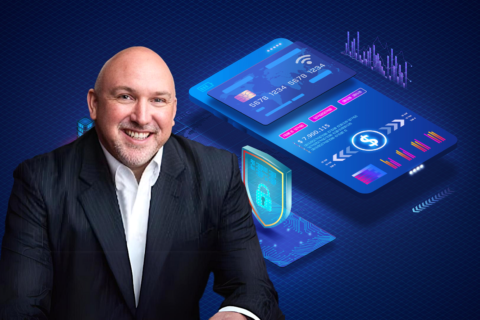
Today, cyber security threats are commonplace; appearing in the media almost daily. From 56 million credit cards comprised by hackers of Home Depot, and the Heartbleed bug to Target’s issues with security and JPMorgan’s 83 million accounts exposed (the largest data breach in history); everyone is slowly coming to terms with the fact that cyber security is not just an individual, governmental, or organizational problem—it cuts across the board.
Security breaches aren’t limited to large retailers. For example, a SolarWinds study suggests that untrained employees are noted as the largest threat at federal agencies (53 percent).
Consumer facing companies often face the brunt of the blowback given the extent of breaches and subsequent publicity. Both factors have fueled a cyber security paradigm shift.
Today, the need for cyber security defense is widespread. Antivirus software and local firewalls, alone, are not enough anymore.
Cyber Security Countermeasures
As a result, startups are leading the charge for enhanced digital security in very innovative ways. For instance, in the past, it was all about identifying threats and creating antivirus software and other measures to deal with the threat. However, some startups are turning the tide against hackers and cyber attackers.
Shape Shifting Technology
Rather than keep up with the enemy, startups are ensuring that through polymorphism (i.e., a programming language’s ability to process objects differently depending on their data type or class.) hackers are the ones who need to keep up.
For instance, since cyber attackers generally target static code in websites and exploit it to steal passwords and other information through undetected scripts, startups like Shape Security create services like The Shape Botwall to protect websites from malware, botnets, and scripts by creating code that changes constantly, making it nearly impossible to misuse.
According to company reports, “Shape’s botwall has prevented over $100 million in fraud losses this year for leading retailers, financial services firms, airlines, and manufacturers.”
Crypto-at-scale Data Security
Shape Shifter products can help ensure web apps are not accessed by automated attacks, but data is not protected while the web app is in use. Even the security of the cloud is not guaranteed. “Securing your data, whether it is on your smartphone, workstation, personal PC, on the cloud or traveling between any of those places should be one of your top concerns when choosing a cloud provider,” according to Imagine IT.
Most security tools are made to secure servers and apps and not data in the cloud. As such, Ionic, a data security startup, aims to offer the world’s most advanced distributed data protection platform by securing data in one process only—at the point of data creation.
“Ionic secures pieces of data, not just whole documents, using trillions of symmetric keys — a type of cryptography that uses one set of keys to encrypt and decrypt information. Ionic’s innovation is in the way it keeps symmetric keys private” (VB).
Opening Code to Researchers
Synack is another startup transforming digital security in a very innovative way. The startup brings together a worldwide community of researchers in cyber security in one unified platform accessed through subscription. Through monetary gifts and incentives Synack rewards top performers as they act on the code of a client to try and crack it.
The results from a wide gamut of researchers is compiled into a unified report from where Synack analyzes the vulnerability of a client’s code and provides suggestions on how to remain secure. However, since there are clients who might not be ready to expose their code to anyone, this method of securing data might not really work as expected.
Modern cyber threats are changing all of the time. Old cybersecurity models often limited, or obsolete, are no longer effective or a fail-safe. No matter what kind of digital security is in place, startups are proving that the best defense is a good offense.
This article has been edited and condensed.
Super nerd turned digital marketer, P.J. Howland is passionate about cutting-edge digital marketing tactics. Within his menagerie of skills; SEO, content marketing and digital analytics stand out. PJ currently lives in Salt Lake City with his beautiful wife, working at a digital marketing agency. Connect with @askPJHowland on Twitter.
© YFS Magazine. All Rights Reserved. Copying prohibited. All material is protected by U.S. and international copyright laws. Unauthorized reproduction or distribution of this material is prohibited. Sharing of this material under Attribution-NonCommercial-NoDerivatives 4.0 International terms, listed here, is permitted.













